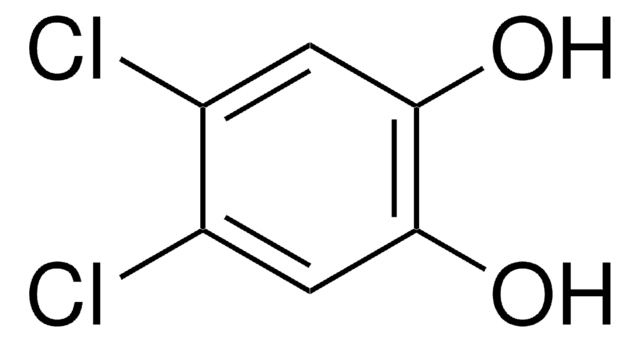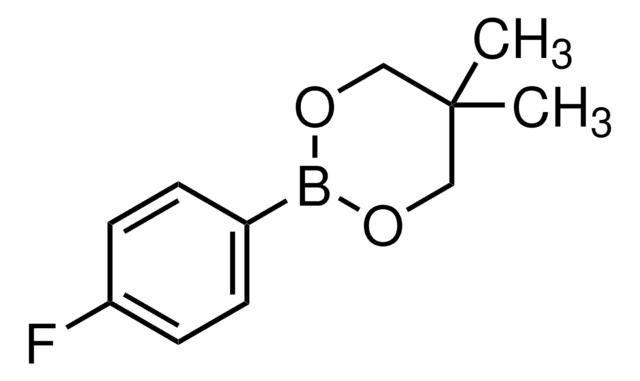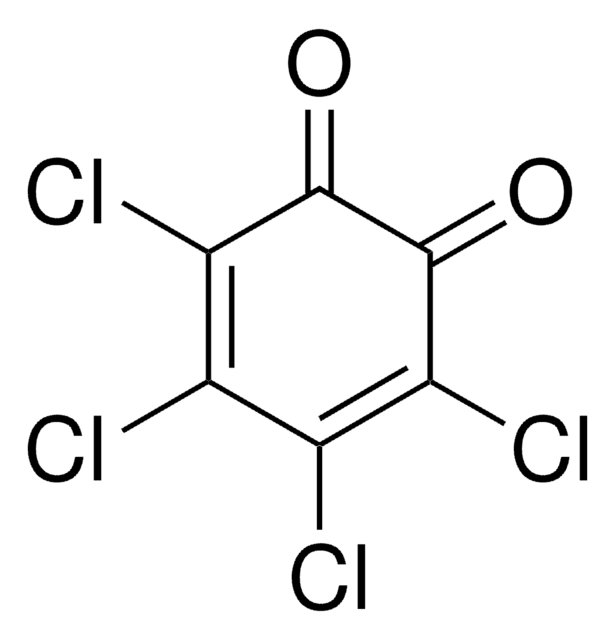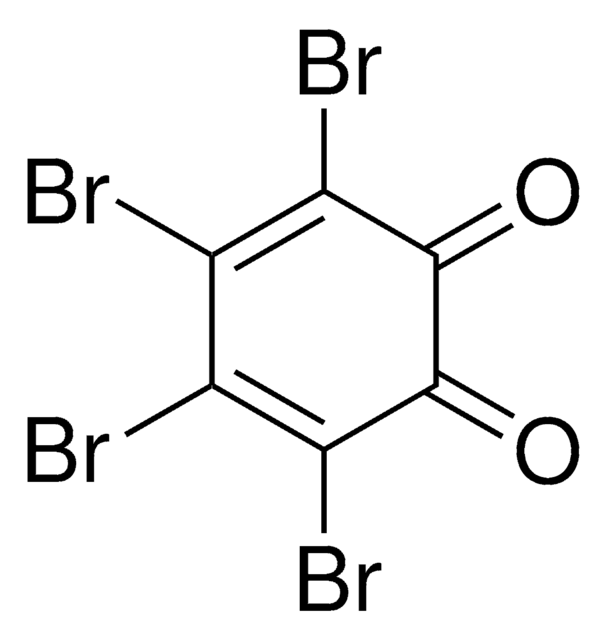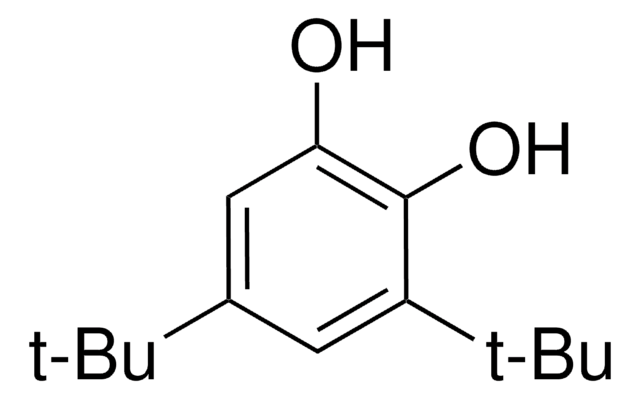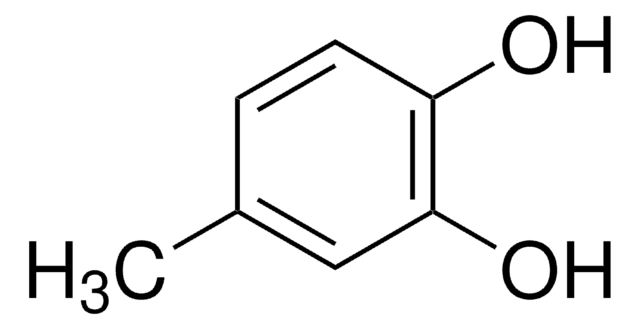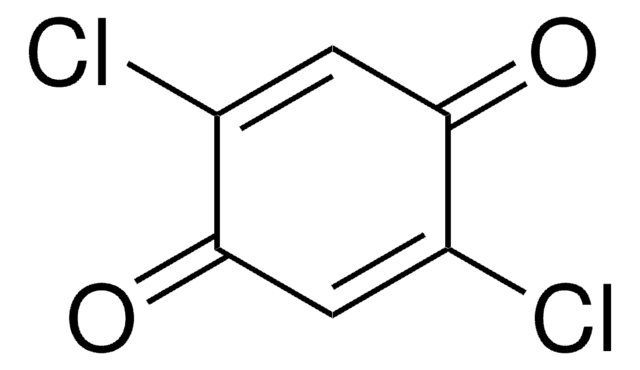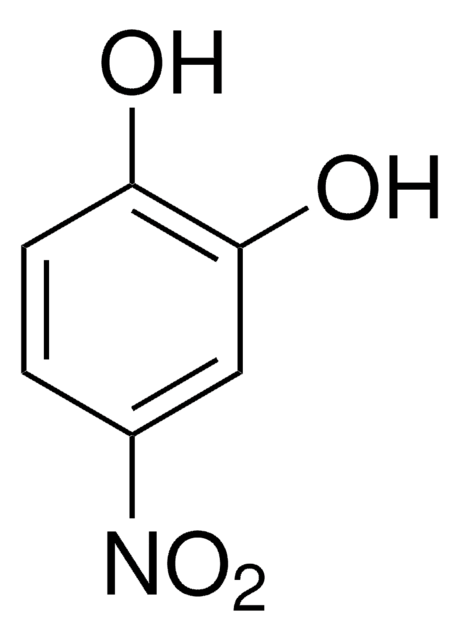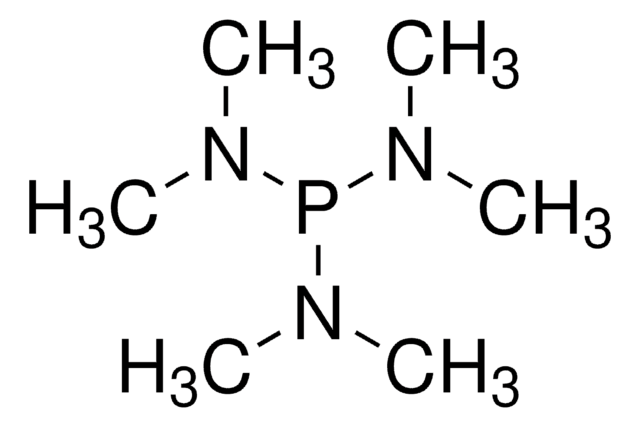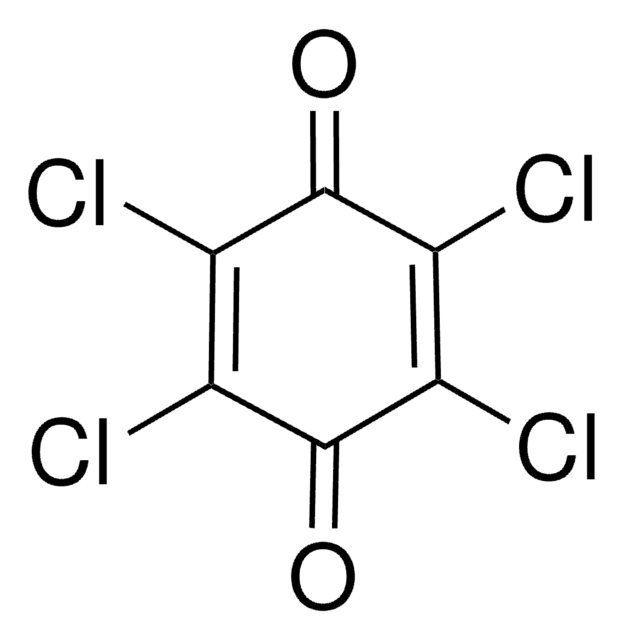Wichtige Dokumente
36443
Tetrachlorbrenzkatechin
technical, ≥95.0% (HPLC)
About This Item
Empfohlene Produkte
Qualität
technical
Qualitätsniveau
Assay
≥95.0% (HPLC)
mp (Schmelzpunkt)
193-195 °C (lit.)
Funktionelle Gruppe
chloro
SMILES String
Oc1c(O)c(Cl)c(Cl)c(Cl)c1Cl
InChI
1S/C6H2Cl4O2/c7-1-2(8)4(10)6(12)5(11)3(1)9/h11-12H
InChIKey
RRBMVWQICIXSEO-UHFFFAOYSA-N
Suchen Sie nach ähnlichen Produkten? Aufrufen Leitfaden zum Produktvergleich
Allgemeine Beschreibung
Anwendung
Signalwort
Danger
H-Sätze
Gefahreneinstufungen
Acute Tox. 4 Oral - Aquatic Acute 1 - Eye Dam. 1
Lagerklassenschlüssel
11 - Combustible Solids
WGK
WGK 3
Flammpunkt (°F)
Not applicable
Flammpunkt (°C)
Not applicable
Persönliche Schutzausrüstung
dust mask type N95 (US), Eyeshields, Faceshields, Gloves
Hier finden Sie alle aktuellen Versionen:
Analysenzertifikate (COA)
Die passende Version wird nicht angezeigt?
Wenn Sie eine bestimmte Version benötigen, können Sie anhand der Lot- oder Chargennummer nach einem spezifischen Zertifikat suchen.
Besitzen Sie dieses Produkt bereits?
In der Dokumentenbibliothek finden Sie die Dokumentation zu den Produkten, die Sie kürzlich erworben haben.
Kunden haben sich ebenfalls angesehen
Unser Team von Wissenschaftlern verfügt über Erfahrung in allen Forschungsbereichen einschließlich Life Science, Materialwissenschaften, chemischer Synthese, Chromatographie, Analytik und vielen mehr..
Setzen Sie sich mit dem technischen Dienst in Verbindung.